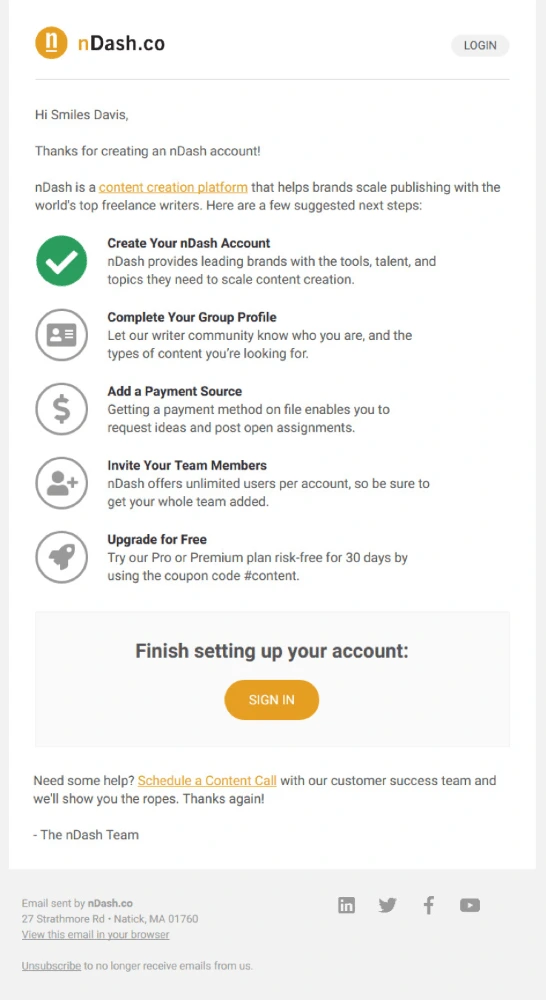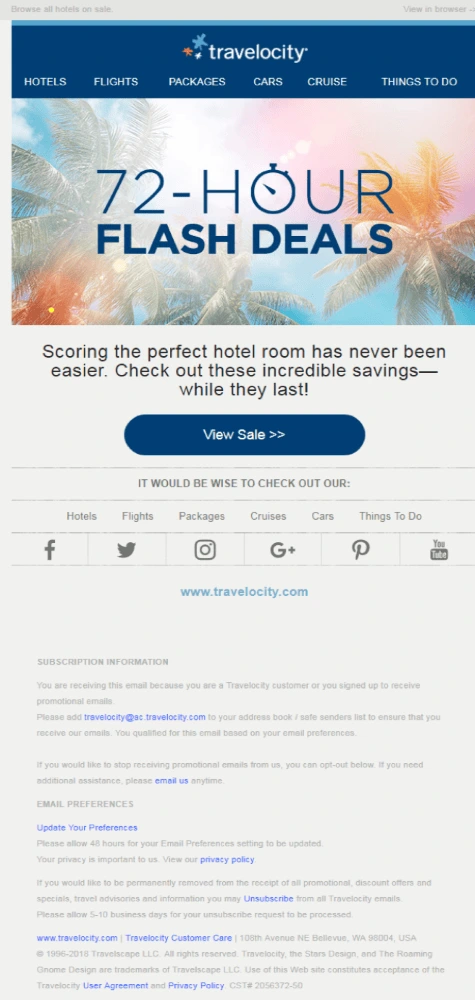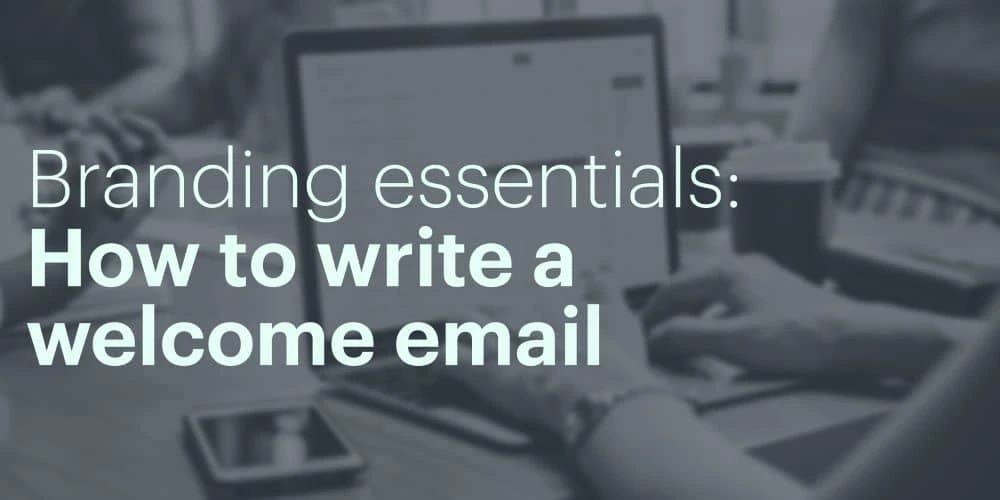If you’re among those who think email marketing is too old-school to be effective these days, you’ve got the wrong idea. Email marketing is still a powerful tool that can help your brand shine.
Related: 8 tips to get more responses to your email marketing
What makes email so effective is the fact that it’s a permission-based marketing channel, one that gives you a chance to reach customers in a personal place—their inbox.
When a prospect signs up for your emails, they’re expecting a welcome email that introduces them to the brand. As this is the first email your subscriber will receive after being added to your email marketing list, it’s crucial to do it right.
9 best practices for your welcome email
1. A timely introduction
Your new subscriber wants to know more about your products & services at the time they sign up for your emails. Take advantage of their interest by sending out a welcome email as soon as they sign up. If you miss out on this opportunity, there’s a real possibility that the subscriber will forget about you and lose interest in your brand.
2. Crisp subject lines
All the work you put into crafting an engaging email will be for naught if your email doesn’t get noticed in a crowded inbox. Add an extra zing while crafting the subject line for your welcome email.
To make your email feel more personal, try using personalized subject lines. People are attracted to their own names, so this will lead to higher open rates. Here’s an example from Google:
Subject line: Smiles Davis, Welcome to your Google Home Mini

3. A pleasant greeting
Greet your new subscribers with a warm welcome email that’s personalized to their interests and preferences. Even when you’re sending automated emails, you can write them in a way that feels personable and real—like they’re coming from a human being and not a robot. Consider using an employee’s name and picture, so subscribers can visualize who’s behind the emails they get from you.
4. Guiding them through the next step
Making your customers wait too long isn’t good practice. You’ll have far better results if you intentionally build brand loyalty and guide customers through the purchase process.
For example, if you’re an online cosmetics brand, tell them why they should choose your brand over the many other brands in the market. Give them an overview of your products and how they can browse your app or website to find the cosmetics they want. If there are other actions you want them to take, spell those out as well—like in this example from nDash.

5. Include freebies in your welcome email
This is your chance to win over new subscribers with low-cost goodies. People love free stuff, so this will endear your brand to them right out of the gate. If you can’t afford to give away items for free without a minimum purchase, consider including a discount or promotion instead—such as a percent-off coupon or a buy-one-get-one promo code.
6. Hit two goals with one email
According to email marketing best practices, it’s recommended to include links to your social media profiles in your email. Ask them to like or follow you on the platforms you use most.
This is an especially clever move for e-commerce brands, since they need a strong audience to build their reputation and provide social proof. Even if you’re not an e-commerce brand, you can build buzz and loyalty by directing subscribers to your social channels.
7. Ask to be whitelisted
Being whitelisted can enhance your deliverability rates and make it easier for subscribers to find your emails in the future. It also helps to keep your emails out of the Spam folder. See how Travelocity asks people to whitelist them in the section titled Subscription Information:

8. Give them a way out
You should always give your customers the option to unsubscribe from your emails at any point. By doing so, you’ll retain genuine subscribers in your list—people who are actually interested in reading your emails. In turn, your engagement metrics will rise, because you’ve eliminated those who aren’t interested in purchasing from you. (Also, unsubscribes are always better than spam complaints.)
9. Include free shipping
For e-commerce brands, one major obstacle your subscribers face while shopping online is high shipping charges.
Ease that friction and encourage first-time buyers by offering free shipping on their first order. Try mentioning it in your welcome email to delight your new subscribers. Creating a happy customer at the onset goes a long way toward building loyalty for your brand.
Mantras to keep your welcome emails engaging
- Pin your top content
Play your cards right with a welcome email that features your best content and gets them excited about your brand for the long haul.
- Avoid no-reply
Do not send your emails with a no-reply email address. It feels impersonal, and it’s important to assure your subscribers that you’re listening to them. They should know there’s a person behind the email ready to hear their problems and feedback.
- Make it compelling
Make your email compelling with content. Welcome emails should catch the subscriber’s attention from the moment they open it. If you’re struggling, try adding a dash of fun or humor to your email. Include interactive elements like GIFs, accordions, cinemagraphs or videos to make it more visually appealing.
- Build anticipation
Create a sense of anticipation with your welcome email. Don’t spill all the beans right at the beginning. Each email should leave the subscriber waiting for the next one. Find a way to highlight your best content and maintain curiosity in your subscriber’s mind so they look forward to hearing from you.
- Try a welcome email series
Instead of just sending one email for the sake of formality, consider sending 2-3 welcome emails as a series to initiate your subscribers. In a welcome series, you can introduce and explain different pieces of your business and entice subscribers to purchase from you.
- Write accessible emails
With one billion people in the world living with some form of disability, it’s incredibly valuable to write accessible emails that can be understood by everyone who receives them. Think about all the ways people might interact with your content—for example, different devices and browsers. How does your email sound when it’s read out loud to a blind audience? What does your plain text email look like? When your message is more inclusive, you have a wider audience to nurture.
Key takeaway
Welcome emails are an excellent opportunity to introduce subscribers to your brand, encourage purchases, and lay the foundation for loyalty down the road. Make sure you include all these essential elements in your welcome emails to set your brand up for success.



